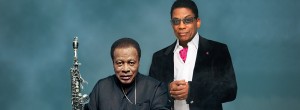Love has been on my mind a lot in recent years. Romantic love, sure, but most often I’m mulling societal love. See, I have a theory: much of what ails society is rooted in distrust and competition. The way we go about healing is rooted in love.
Love is as love does. Love is an act of will – namely,
both an intention and an action.
Will also implies choice. We do not have to love. We choose to love.
~M. Scott Peck as quoted by bell hooks
From where I stand, it seems a lot of what transpires in daily life is a deliberate choice to avoid love. It’s like we go out of our way to be cold and closed off or simply mean. All day in schools we yell at children who were yelled at or ignored at home the night before, and we wonder why they aren’t more “civilized.” We criminalize any behavior we think is the least bit out of bounds, and put forth little effort into prevention in the first place, or rehabilitation in the second. We sue folks for trying to come to our aid, so people live in fear of being helpful. We do any and everything but love.
And that’s why love is a revolutionary act – because there isn’t enough of the doing of love these days. There’s more than enough talk about finding a mate, or keeping one. But it’s a might too quiet on the love thy neighbor front. It’s sad really, and ultimately dangerous. A loveless society can only create more of the same, no? Physical and mental abuse are not born of love. Wars are not initiated by people who are acting from love. Fear. Domination. Revenge. Power. But not love.
We are taught to believe love just happens. And you fall in it, or as the creatives now say, you rise in it. In any case, allegedly love happens to you, and then you respond. But let’s consider that maybe love is something you do, rather than something that shows up out of the clear blue sky. Then we can be more intentional in our actions, as M. Scott Peck suggests. Think of an active participation in love, rather than a passive one. So what, then, might doing love entail?
To truly love we must learn to mix various ingredients
care, affection, recognition, respect, commitment, and trust,
as well as honest and open communication.
~bell hooks
The affection part is what we know and feel most readily, but what of the rest? Caring for something or someone takes effort. Think about house plants or your pet. When you care for them, you’re doing something – feeding, nurturing, soothing, what have you. You’re not just feeling affection; you’re acting.
And what of recognition? If we would engage the effort to recognize one another for who we really are, rather than who we imagine, what a loving act that would be. How often do you feel seen, truly seen, recognized, for who you are? What would it take to be recognized? Honest communication is certainly a start. And I would go so far as to say that communication must happen within oneself as surely as it must happen between ourselves and others. In other words, our responsibility to societal love is grounded, in part, in our responsibility to care for, recognize, respect, and trust ourselves.
Let’s spend more time pondering a theory of love. And then more time still practicing love with ourselves and those around us. Your time and attention to love moves us all closer to healing.
 Today I want to share a quote from an open letter by world renown artists, fellow Buddhists, Wayne Shorter and Herbie Hancock. The letter is meant to inspire and provoke artists, but the encouragement is food for thought for us all. They share 10 points, ending with the hope that we live in a state of constant wonder. They begin with this:
Today I want to share a quote from an open letter by world renown artists, fellow Buddhists, Wayne Shorter and Herbie Hancock. The letter is meant to inspire and provoke artists, but the encouragement is food for thought for us all. They share 10 points, ending with the hope that we live in a state of constant wonder. They begin with this: